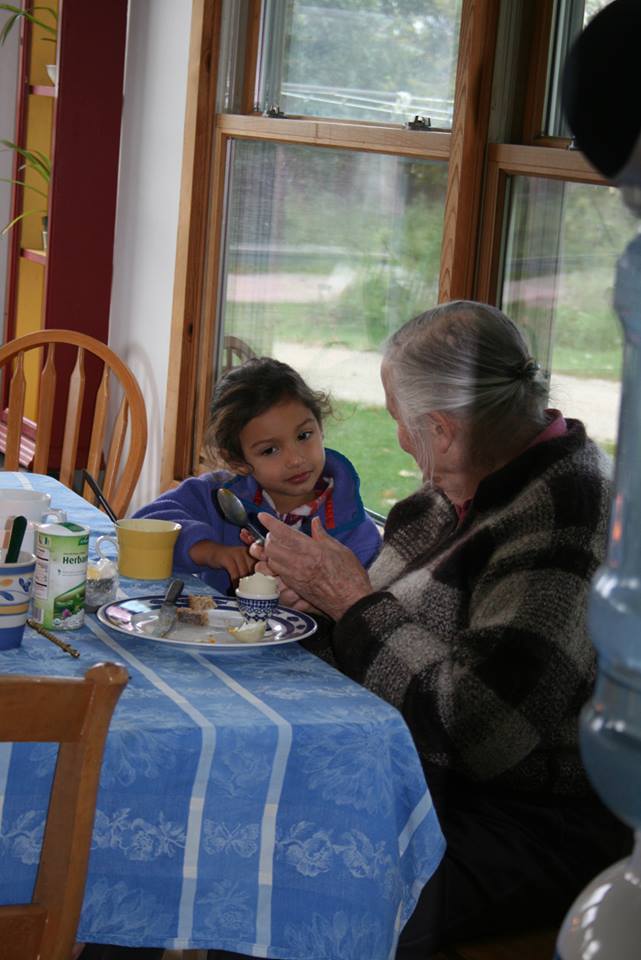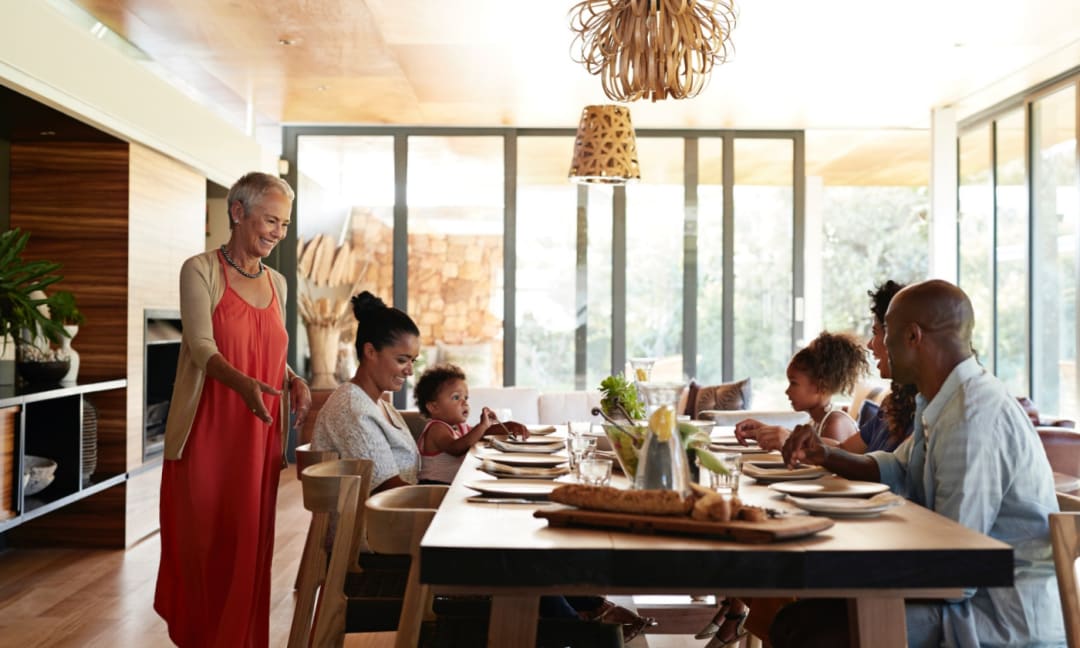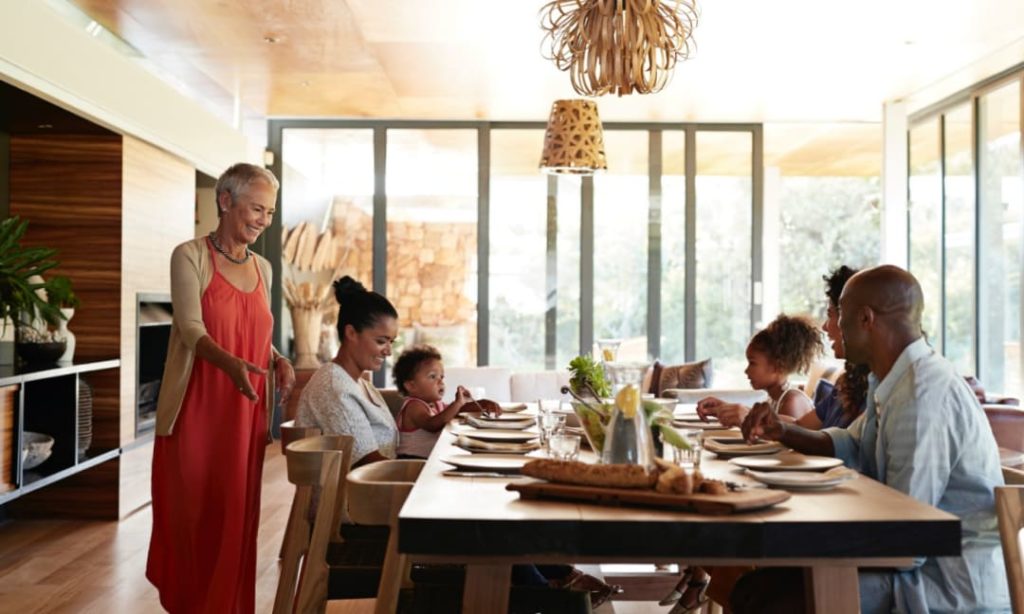January 31, 2021
In family life, love is the oil that eases friction, the cement that binds closer together, and the music that brings harmony. –Friedrich Nietzsche

I am listening to my mother “tutor” my 13-year old son on the preliminary preparations for cooking dinner. She’s referring to the lack of clean utensils for his work and planning out the steps beyond his recipe- important considerations for a practicing chef! The kitchen is alive with activity, and in the adjacent family room, my younger sons are relaxing with my dad on the couch. Giggles and conversation buzz through the house and into the art room where I sit listening, steeped in gratitude.
For some time, the norm of our country has long been to “fly the coop” and make a life separate from the home one grew up in. Indeed, this has been an important step for us all. Culturally, it has paved the way for freer, independent consciousness. Yet, as we forge new paths and possibilities of careers and life fulfillment, as our modern lives become fuller and fuller, a free consciousness also includes discovering what is good and right for one’s own family. And in this paradigm, we all come to understand that while we thrive in our independence, we also need others. We need help to both accomplish and appreciate all that we work for in daily life. Thus, we seek out a support system- to help raise our children, to put dinner on the table, to fulfill our spiritual lives, to maintain our physical health, to share laughter and tears and advice. If we don’t have this help, we languish.
In this modern day life, our support systems- our “extended” families- can take many forms. Multigenerational living is one of those forms on the rise. Pew Research Center reported in 2016 that 1 in 5 Americans (a total of 64 million people) lived in multigenerational homes. Three or more generations were present in 28.4 million of those households. There is great diversity in ethnicity, socioeconomic condition, and age, as well as reasons for the choice.
Along with the practical benefits such as increased financial security and more “hands” to help in daily logistics, living with my parents adds layers of richness to our home life. Just last year there were plenty of busy moments when I wished I had more time to teach my sons new skills, or explore mutual interests more deeply. My wish has been fulfilled now living with my parents who are eager for opportunities to connect with their grandsons in shared activity. My mom bakes with them and helps with craft projects. My dad spent time this fall working with my middle son on weekly woodwork projects, culminating in hand-built games for his brother’s Christmas presents. He mentors them in the garage (workshop) with “all things handy” or construction-related.
When we need advice, it is available right downstairs. Whether it is about a marital decision or disciplinary challenge, my parents offer the wisdom of their experience and emotional support in understanding the difficulties of family life. Exasperation dissolves into relief as my mom and I chuckle at the cuteness of my six-year old’s huffing and puffing when resistance meets surrender. After our 13-year old persistently challenges the last “no” he was given and we want to ship him off for the next decade, Erik and I really appreciate my parents’ sympathy. And we all giggle when we witness the banter of married folks who have been together for nearly 40 years!

At the dinner table, in our daily-life exchanges, and in our conflicts, their language of experience influences our social intellect and deepens our compassion for each other. Navigating life with such a variety of individuals constantly asks us to be awake in our consciousness. We strive to be clear, honest and open in our communication. We must work to respect and appreciate everyone’s differing needs, contributions and capacities. Our home is full of warmth and love and growth. It helps that it’s often full of laughter, too.
No matter what our “extended families” look like, I think we all desire the support that helps us to not only survive, but to flourish. More intensely than ever before, in order to flourish, our present time requires learning to celebrate individual differences. In my multigenerational home, I appreciate that daily life offers the opportunity to live creatively with our differences, and in turn find connections that create wholeness within us all that help us to thrive.

